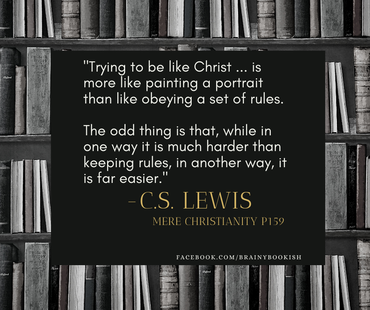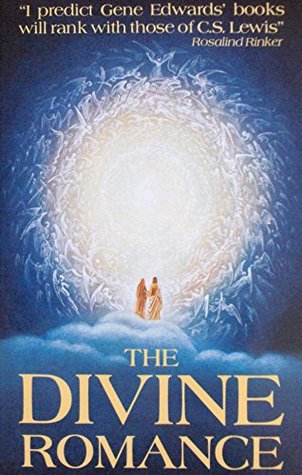“Oh really!” I said, stirring a pot of boiling peas, “They’re good even after leaving them out overnight?”
“Yep!” Liz said, standing on the opposite side of the kitchen island, “It was an accident! I meant to make muffins out of them right away, but then I forgot about them. In the morning, there was the bowl of mashed bananas. They looked okay, so I figured, let’s try it!” She shrugged and raised her eyebrows. “And you know, it was the best, most fluffy banana bread I had ever made!”
“Wow! Good to know!” I finished stirring all the pots on the stove and turned to her with a smile. “I’m totally going to try that!”
We had invited Liz to church with us that morning and then to our place for lunch. It was her first time at our place, but it felt like we’d been best friends for years; like we had stood chatting in that very kitchen a hundred times. I poured steaming water from the kettle into her waiting mug. “Cream or sugar? Honey?”
“No, this is fine.” She lifted the string and waved her hand over the tea like a conductor leading a light, happy melody. After steeping her tea, she made her way around the island into the kitchen. “Plates are in here?” She pointed to a cupboard.
“Yep.”
She opened the cupboard door, removed a dish to rest her teabag on, then opened the drawer and pulled out a spoon. She returned to her spot and tended to her tea. I smiled, feeling warm inside. This was the stuff of friendship. One didn’t open just anyone’s cupboards or help themselves to cutlery. Heck, even in my own parents’ house, I made sure to ask before grabbing a glass of water, and they liked it that way. I mean, they always said ‘help yourself’ and ‘make yourself at home’, but I knew better.
I had tested their invitation a few times, finding the result more annoying than rewarding. One day I ‘helped myself’ by helping Mom with whatever had been simmering on the stove that day. She’d been sitting at the table, exhausted, and I’d offered to take over. She’d allowed it, which was surprising in itself.
Dad had been sitting at his office computer during our visit, able to overhear our conversation through the open door. It always felt weird when he did that, like we were being monitored. Part of me wanted to invite him to join us all the way, and part of me wished he would go to the garage like usual so Mom and I could speak more freely. Just as I finished cooking the pan of food, Dad walked into the kitchen. I flipped off the element and moved the pot to the center of the stove to cool.
“Oh, we don’t do it like that,” Dad said. He walked up beside me and reached for the pot. “We put it over here.” He moved the pot to the rear element. “And we do like this.” He lifted the wooden spoon from where I’d laid it on the counter and placed it on a spoon holder I had thought was only decorative. “Okay?” He smiled and patted my shoulder.
“Sure thing.” I smiled back, but was confused.
If he cared so deeply about the details, why didn’t he cook it himself? Maybe the fun was in making me feel restricted and unsure of myself; less free. Or maybe the point was to remind me he was the King of the Castle and I’d best not forget my place.
He grabbed the glass of water he’d apparently come for and returned to his place at the computer screen. I looked over at Mom, who shrugged.
I turned back to the stove, my work now corrected, and was glad it was finished so I didn’t have to touch anything anymore. Mom used to be particular too, even advising me into my thirties about how to assemble the Caesar salad I’d brought to Christmas, but she seemed mellower. Maybe cancer had mellowed her. Maybe Dad was picky enough for the both of them. Either way, I resolved not to touch more than I had to in their house.
Here in my own kitchen, Liz really did help herself, and I really wanted her to. She stood beside me occasionally, lifted a pot lid, smelled the steam, and asked me what ingredients I’d used. She asked about my technique and spice preferences, and I asked about hers. She stirred the pots when I’d leave to get ingredients, and keep right on stirring when I returned, so I’d take my turn standing and chatting while she worked. We swapped cooking secrets and tips, and admired each other’s knowledge and abilities. We laughed and explored each other’s ideas and kitchen habits like best friends brainstorming solutions for a science experiment. According to Mark, we giggled and chattered like two excited school girls.
The kitchen didn’t need a king or queen. It was not a territory to rule, or a place for servants to earn their keep; it was a place for friends – equals - to be together and make memories. That day, Liz and I were roommates and the kitchen belonged to us both.
After lunch, Ethan, Abby, and Mark each disappeared to their own Sunday afternoon activities, and Liz and I had the rare opportunity to visit alone. We talked about her marriage, her husband’s sudden death, and how it was difficult but necessary to leave her adult son behind in Alberta and move to Manitoba. The openness and transparency with which she shared made my heart soar. She was confiding in me! Of course she was. We’d shared so much over Facebook messaging already, this was just a natural continuation. Still, I thought, what an honor to be trusted with her heart. And then to discover her heart and mine to be so similar was an astounding surprise.
I felt like a parched desert wanderer who had finally found an oasis of sweet, cool water. All I wanted to do was kneel at the waters’ edge and drink deeply and never stop.
“Yep!” Liz said, standing on the opposite side of the kitchen island, “It was an accident! I meant to make muffins out of them right away, but then I forgot about them. In the morning, there was the bowl of mashed bananas. They looked okay, so I figured, let’s try it!” She shrugged and raised her eyebrows. “And you know, it was the best, most fluffy banana bread I had ever made!”
“Wow! Good to know!” I finished stirring all the pots on the stove and turned to her with a smile. “I’m totally going to try that!”
We had invited Liz to church with us that morning and then to our place for lunch. It was her first time at our place, but it felt like we’d been best friends for years; like we had stood chatting in that very kitchen a hundred times. I poured steaming water from the kettle into her waiting mug. “Cream or sugar? Honey?”
“No, this is fine.” She lifted the string and waved her hand over the tea like a conductor leading a light, happy melody. After steeping her tea, she made her way around the island into the kitchen. “Plates are in here?” She pointed to a cupboard.
“Yep.”
She opened the cupboard door, removed a dish to rest her teabag on, then opened the drawer and pulled out a spoon. She returned to her spot and tended to her tea. I smiled, feeling warm inside. This was the stuff of friendship. One didn’t open just anyone’s cupboards or help themselves to cutlery. Heck, even in my own parents’ house, I made sure to ask before grabbing a glass of water, and they liked it that way. I mean, they always said ‘help yourself’ and ‘make yourself at home’, but I knew better.
I had tested their invitation a few times, finding the result more annoying than rewarding. One day I ‘helped myself’ by helping Mom with whatever had been simmering on the stove that day. She’d been sitting at the table, exhausted, and I’d offered to take over. She’d allowed it, which was surprising in itself.
Dad had been sitting at his office computer during our visit, able to overhear our conversation through the open door. It always felt weird when he did that, like we were being monitored. Part of me wanted to invite him to join us all the way, and part of me wished he would go to the garage like usual so Mom and I could speak more freely. Just as I finished cooking the pan of food, Dad walked into the kitchen. I flipped off the element and moved the pot to the center of the stove to cool.
“Oh, we don’t do it like that,” Dad said. He walked up beside me and reached for the pot. “We put it over here.” He moved the pot to the rear element. “And we do like this.” He lifted the wooden spoon from where I’d laid it on the counter and placed it on a spoon holder I had thought was only decorative. “Okay?” He smiled and patted my shoulder.
“Sure thing.” I smiled back, but was confused.
If he cared so deeply about the details, why didn’t he cook it himself? Maybe the fun was in making me feel restricted and unsure of myself; less free. Or maybe the point was to remind me he was the King of the Castle and I’d best not forget my place.
He grabbed the glass of water he’d apparently come for and returned to his place at the computer screen. I looked over at Mom, who shrugged.
I turned back to the stove, my work now corrected, and was glad it was finished so I didn’t have to touch anything anymore. Mom used to be particular too, even advising me into my thirties about how to assemble the Caesar salad I’d brought to Christmas, but she seemed mellower. Maybe cancer had mellowed her. Maybe Dad was picky enough for the both of them. Either way, I resolved not to touch more than I had to in their house.
Here in my own kitchen, Liz really did help herself, and I really wanted her to. She stood beside me occasionally, lifted a pot lid, smelled the steam, and asked me what ingredients I’d used. She asked about my technique and spice preferences, and I asked about hers. She stirred the pots when I’d leave to get ingredients, and keep right on stirring when I returned, so I’d take my turn standing and chatting while she worked. We swapped cooking secrets and tips, and admired each other’s knowledge and abilities. We laughed and explored each other’s ideas and kitchen habits like best friends brainstorming solutions for a science experiment. According to Mark, we giggled and chattered like two excited school girls.
The kitchen didn’t need a king or queen. It was not a territory to rule, or a place for servants to earn their keep; it was a place for friends – equals - to be together and make memories. That day, Liz and I were roommates and the kitchen belonged to us both.
After lunch, Ethan, Abby, and Mark each disappeared to their own Sunday afternoon activities, and Liz and I had the rare opportunity to visit alone. We talked about her marriage, her husband’s sudden death, and how it was difficult but necessary to leave her adult son behind in Alberta and move to Manitoba. The openness and transparency with which she shared made my heart soar. She was confiding in me! Of course she was. We’d shared so much over Facebook messaging already, this was just a natural continuation. Still, I thought, what an honor to be trusted with her heart. And then to discover her heart and mine to be so similar was an astounding surprise.
I felt like a parched desert wanderer who had finally found an oasis of sweet, cool water. All I wanted to do was kneel at the waters’ edge and drink deeply and never stop.









